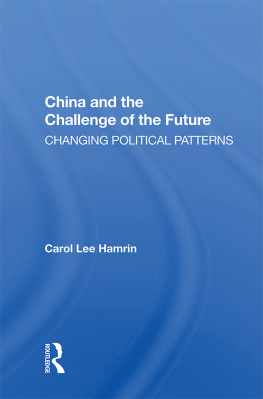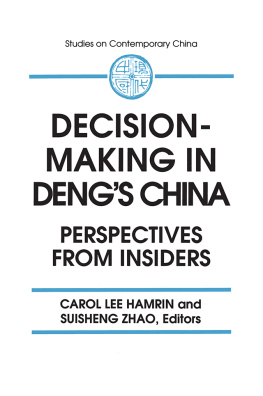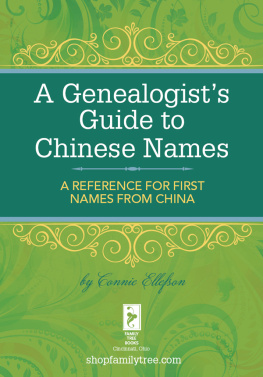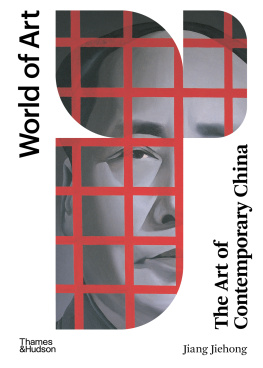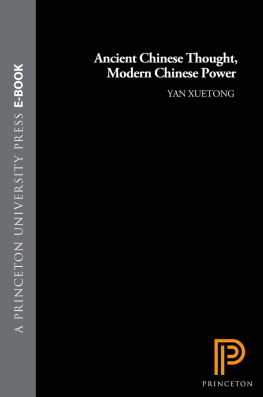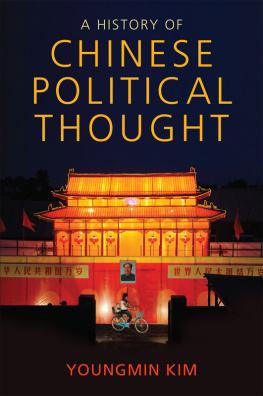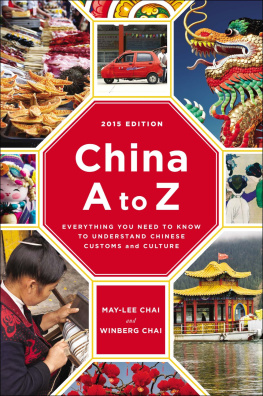First published 1990 by Westview Press, Inc.
Published 2018 by Routledge
52 Vanderbilt Avenue, New York, NY 10017
2 Park Square, Milton Park, Abingdon, Oxon OX14 4RN
Routledge is an imprint of the Taylor & Francis Group, an informa business
Copyright 1990 Taylor & Francis
All rights reserved. No part of this book may be reprinted or reproduced or utilised in any form or by any electronic, mechanical, or other means, now known or hereafter invented, including photocopying and recording, or in any information storage or retrieval system, without permission in writing from the publishers.
Notice:
Product or corporate names may be trademarks or registered trademarks, and are used only for identification and explanation without intent to infringe.
Library of Congress Cataloging-in-Publication Data
Hamrin, Carol Lee.
China and the challenge of the future:
changing political patterns
Includes index.
1. ChinaEconomic policy1976 . 2. China
Politics and government1976 . I. Title.
HC427.92.H34 1990 338.951 86-28960
ISBN 13: 978-0-367-00372-2 (hbk)
Dedicated with gratitude to Robert, who first suggested I write a book about China's future, and to the Chinese reformers of the 1980s
This book highlights information obtained from formal interviews and informal conversations with knowledgeable Chinese in 1985-1987, although it is informed by years of background reading in the Chinese press. During that time, I was a visiting scholar at the Edwin O. Reischauer Center for East Asian Studies at the Johns Hopkins University School of Advanced International Studies (SAIS), while on sabbatical from my work as a research specialist at the Department of State and from my part-time teaching duties at SAIS. Through an introduction by Doak Barnett of SAIS, I proposed to Vice President Zhao Fusan of the Chinese Academy of Social Sciences that I interview officials and scholars involved in the planning process both in Beijing and in some of the special economic zones, the open coastal cities, and the key cities experimenting with reform. The academy invited me for this purpose, and Lin Di of the academy's foreign affairs bureau helped arrange meetings in November 1985 (Shenzhen, Guangzhou, Xiamen, Fuzhou, Shanghai, and Beijing), in May 1986 (Beijing, Tianjin, Shenyang, Anshan, and Dalian), and again in May 1987 (Beijing).
Because of the macroscopic nature of my topic and the speed of change in China, as well as the limitations of my time and abilities and the nature of the interview process, my conclusions can only be suggestive, not definitive. They are a sketch of how some strategic policy decisions were made in China in 1983-1987, not a detailed portrait of how they always have been or will be made. I was able to learn more about economic decisionmaking than about political, ideological, or military policy decisions. Many interviewees were quite ready to discuss the evolution of policy, but not disagreements over policy or the names of disputants. Some found concepts and questions about the structure and process of policymaking too unfamiliar to address clearly. My interviews were wide rather than deepthat is, I interviewed many people from different policy arenas and institutions, but few people from each. My sources included more policy researchers and advisers than policymakers. The most important limitation to my study is its focus on the formation of policy at the higher levels of the system, not on its implementation at lower levels, which many would argue is more than half the story. Along the way, however, I did learn something of how the frustrations, failures, or successes in policy fed back into the next round of decision.
This book focuses on changes in China up through the 13th Party Congress of 1987, concluding with some judgments on trends through 1988. Copyediting of my final draft was completed in early June 1989, arriving in the mail for my review just after the Democracy Movement was crushed by the Beijing massacre of 4 June. In response to these events, I added a subsection to my concluding chapter and deleted more names of interviewees to protect people at a time of great uncertainty.
I gained much personal satisfaction and knowledge from this research opportunity. I express my deep appreciation to Doak Barnett and to SAIS for their support and to my hosts at the Chinese Academy of Social Sciences for their invaluable assistance, which was marked by warmth, efficiency, and great persistence. I am grateful to the individual Chinese scholars and officials who took valuable time to meet with me and who provided me with further introductions and written materials to help me understand the planning process and the broader intellectual and political changes underway in China.
Special thanks are due the U.S. government, which provided me with a paid sabbatical as well as research and travel funds through the Exceptional Analyst Program. I thank my colleagues, particularly Tom Fingar and Chris Clarke, for their help and support. My choice of topic and research efforts were entirely independent, however, and my study is not being used for any official purpose. The conclusions of this study represent my personal views, not the official views of the U.S. government.
I also thank a number of other U.S. scholars who provided timely suggestions, either individually or by arranging seminars to discuss sections of my written work: Gerald Barney, Ralph Clough, Nina Halpern, Harry Harding, Kenneth Lieberthal, and James Reardon-Anderson. Detailed comments on the penultimate draft by Timothy Cheek, Barry Naughton, Suzanne Ogden, Michel Oksenberg, and Robert Suettinger were invaluable in shaping the final product, and I am deeply grateful to them. My friend Louisa Brown offered help with editing at a crucial time, and Susan McEachern, senior acquisitions editor at Westview Press, was very patient, encouraging, and helpful throughout the process of producing this book. Libby Barstow, senior production editor at Westview, efficiently arranged for final editing, indexing, and publication, and Jan Kristiansson provided excellent copyediting.
Carol Lee Hamrin
Washington, D.C.
1
Introduction
Since the early 1980s, the leadership of the People's Republic of China (PRC) has been discussing and revising modernization goals and strategies for the year 2000 and beyond. This study originated as an attempt to understand the policy content and institutional process of such strategic decisionmaking in the Deng Xiaoping era. Thus, one aim of this book is to explain how Chinese leaders and their advisers consciously sort out national priorities and direction by coordinating diverse demands and opportunities and to demonstrate where, when, and how this occurs in the political system.
In China, determining national strategy or direction involves deciding fundamentalmoral and ideologicalprinciples, not merely adopting a practical policy framework for problem solving. Therefore, acquiring the power to influence overall guidelines is central to political competition. As a result, this book illuminates the evolution in the 1980s of high-level politicsthe use by individual leaders of policy institutions and processes to pursue power and to implement programs. This study also reveals the growing participation in politics of other social groups, especially intellectuals, and related changes underway in the patterns of contemporary Chinese political thought and culture.

